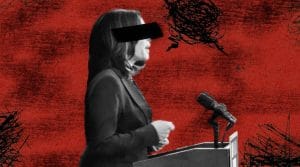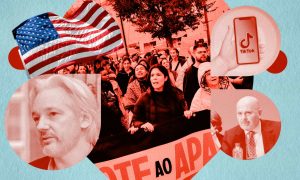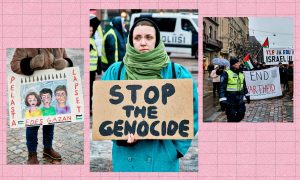Amidst rising violence and a tightening grip on truth, Israel’s aggressive campaign against journalists mirrors tactics used by history’s most oppressive regimes.
The stakes
The first casualty in any assault is invariably the truth. But what is it about journalists that tyrants find so terrifying? It is the fear of empowerment that comes with knowledge. Despots thrive in the shadows that ignorance casts, manipulating and controlling through a cocktail of misinformation and deceit. Yet, a journalist can spark a flame in our mind, capable of incinerating the very foundations of tyranny.
Hiding the truth is not merely the erratic behaviour of the paranoid or the despotically inclined; it is a clear indication of inherent weakness. A government that stands firm in its legitimacy and moral authority does not flinch at criticism nor recoil from dissent. It is the inherent brittleness of despotic rule that dreads the light of scrutiny, much like a rotten structure teetering on the verge of collapse at the merest prod.
On this year’s UNESCO-designated World Press Freedom Day, our gaze is inevitably drawn to Gaza. How can we look away when more than 70% of the journalists killed globally in 2023 were Palestinian reporters and victims of Israeli strikes?
Israeli actions have ushered one of the darkest periods for journalism in recorded history. Typically, such events would rally a global outcry; yet, the response has been peculiarly muted.
In this ominous context, President Joe Biden, who hosted his annual White House Correspondents’ Dinner, faced a boycott call from Palestinian journalists. In a letter, they accused the Biden administration of complicity in Israel’s systematic killing of media workers in Gaza.
“The toll exacted on us for merely fulfilling our journalistic duties is staggering,” the letter read. “We are subjected to detentions, interrogations and torture by the Israeli military, all for the ‘crime’ of journalistic integrity.”
Biden did not respond to the letter during his private dinner. Why would he? His administration, alongside many of our Western governments, has unequivocally supported Israel’s war crimes in Gaza. The US and its allies, through silence or multi-billion-dollar arms support deals, have been complicit in the suppression—and indeed, the killing—of journalists.
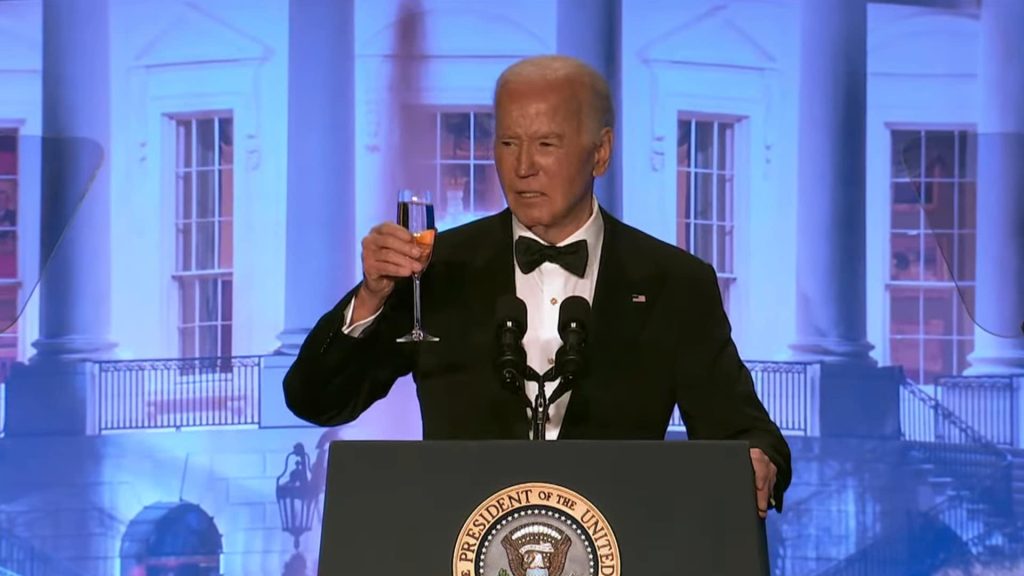
Israel has targeted media personnel in Gaza and Lebanon with lethal precision for some time; from October 7, to May 3, at least 97 journalists and media workers were confirmed dead, with 16 injured, four missing and 25 arrested. Reports from the Committee to Protect Journalists also detail multiple assaults, threats, cyberattacks, censorship, and even the killing of family members of journalists. This pattern of brutality is not merely systemic, it is officially sanctioned.
Despite these perils, the killing of journalists in Gaza has not deterred reporters—why should it, when their mission is to uncover the truth, regardless of the cost? Realising that physical intimidation could not silence these resolute journalists, Israel understood it had to strike at the very root of their resolve.
The Al Jazeera Law
On the first of April, under the convenient banner of national security, the Israeli Knesset took a significant step towards deeper tyranny with the enactment of a draconian measure. Termed the ‘Al Jazeera Law,’ this legislation grants the Communications Minister sweeping powers to close foreign media operations deemed a threat to the state’s nebulous security standards.
Shlomo Karhi, the Communications Minister, who had called for more land in Gaza to be annexed after October 7th, praised the law as an essential tool against those purportedly using press freedoms to undermine the Israeli Defence Force (IDF) and incite terrorism.
With his usual flair for dramatics, the embattled Prime Minister Benjamin Netanyahu vocally supported wielding this new legislative weapon. Its effects were immediate; the local Al Jazeera offices were shut down, and now, any media outlet casting a critical glance at governmental policies finds itself under threat. These ominous pronouncements extend beyond foreign outlets like Al Jazeera, menacing local critics like the domestic liberal newspaper Haaretz and the public broadcaster Kan.
“Since the beginning of the war, my office has received numerous complaints that the Haaretz newspaper has taken a harmful line which undermines the goals of the war and weakens the military effort and societal resilience,” Shlomo Karhi claimed.
He alleged that some of Haaretz’s articles, including a piece by columnist Amira Hass, who wrote on October 7th that “In one day, Israeli citizens experienced what Palestinians have experienced and experience for decades as a matter of routine: military invasion, death, cruelty, children killed, bodies left in the streets” may have “crossed the criminal threshold” and said he was sure that this would be “examined by the relevant authorities”.
From October 7, Israel has imposed strict controls on media access to Gaza, effectively barring journalists despite repeated pleas from media organisations for “free and unfettered access”. Israel’s stringent restrictions on media access to Gaza serve to throttle any semblance of unfiltered news. Journalists are only allowed in under the strict supervision of the IDF, ensuring that whatever is reported aligns strictly with the approved narrative. This is not mere censorship; this is narrative manipulation at its most blatant and disturbing.
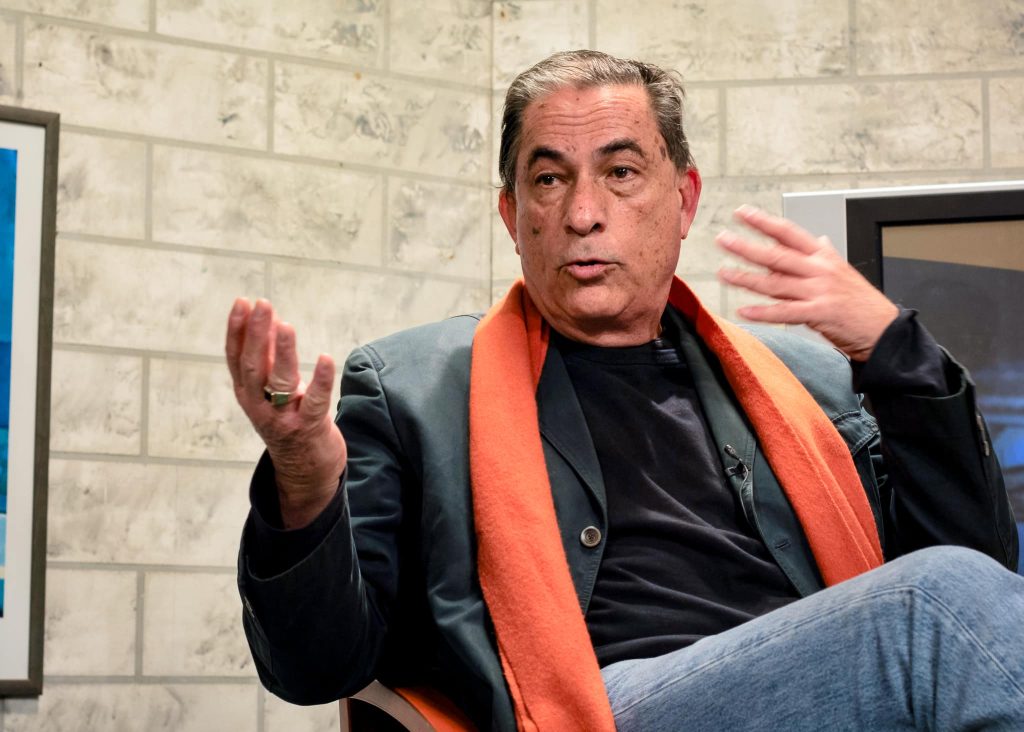
Domestically, coverage of Israel’s actions in Gaza is predominantly skewed to portray Israelis exclusively as victims, conveniently omitting significant aspects of the story. Gideon Levy, a columnist at Haaretz, told Al Jazeera, “For me, over the past seven months, Al Jazeera English has been one of the primary, if not the primary, sources of information about what is happening in Gaza, as Israeli TV shows nothing from Gaza.”
What is Israel so desperate to hide? The unrelenting efforts of journalists, now under grave threat, including those from Al Jazeera, have peeled back the curtain on Israel’s war on Palestine. The revealed atrocities include the starvation of civilians, the killing and maiming of children, forced displacement, the use of white phosphorus, the bombing of schools and other buildings (including religious, cultural and historical sites), the destruction of every hospital in Gaza, the creation of mass graves filled with children and adults, many of whom were bound at the wrists, the execution of surrendered combatants and civilians, and variuos cases of sexual violence against Palestinian women in Israeli detention.
These are substantiated claims, supported by findings of those on the ground as well as independent United Nations bodies and reputable human rights organisations such as Amnesty International and Human Rights Watch.
We’ve seen this before
The strategies employed by Israel to shut down media are not innovative; they are the hallmark of authoritarian regimes seen throughout history. During the grim years of apartheid in South Africa, the National Party wielded censorship as a weapon of control. The media was under an iron fist; publications critiquing government policies were systematically banned, and journalists revealing the harsh realities faced harassment, detention, or worse.
The Rand Daily Mail serves as a stark illustration. Known for its bold exposés, such as those detailing the Sharpeville Massacre where police killed 69 peaceful protesters, it consistently challenged authority. Ultimately, the newspaper was forced to shut down in 1985 due to relentless governmental pressure.
This repressive reach extended to foreign correspondents too, whose movements and reporting were curtailed by apartheid censors. Journalists who reported particularly piercing truths found themselves expelled, their silenced voices resonating even more profoundly in their forced absence.
You can’t help but hear the echoes of apartheid-era South Africa in what is happening right now in Gaza. It is as if history’s darkest chapters are not just being replayed but intensified in Israel’s actions. However, Israel, who has long engaged in the systematic oppression of Palestinians and acts that amount to apartheid, now faces allegations of genocide as well. It is currently under investigation by the International Court of Justice for these genocidal actions.
The well-worn tactic of silencing the media isn’t just about stifling dissent. No, it’s far more insidious. It systematically strips away the humanity of targeted groups, eroding their moral standing, bit by bit. And it seems Israel is following the playbook of genocidal regimes with chilling precision.
The Rwandan genocide in 1994 against the Tutsi was not only marked by unprecedented violence, but also by a sinister utilisation of the media by the genocidaires themselves. The most notorious was Radio Télévision Libre des Mille Collines (RTLM), a Hutu-run radio station that played a critical role in inciting violence. Broadcasting hate speech and describing Tutsis as “cockroaches” and directing killers to Tutsi refuges.
“I remember RTLM broadcasting songs conveying hatred and demonising the Tutsi. The songs would openly call for our extermination. Political slogans were translated into song and young people were mobilised into youth movements. These youth movements were key to executing the genocide”, writes Mia Swart, reflecting on the role of the radio station.
The aftermath of the genocide saw the conviction of key figures behind RTLM by the International Criminal Tribunal for Rwanda, highlighting the recognised role of media leaders in the atrocities committed during the genocide.
In Israel, the media landscape often amplifies the official line rather than checks it, with instances of hate speech and dehumanisation of Palestinians being commonplace. For example, commentators like Zvi Yehezkeli of Channel 13 downplay the severity of attacks on journalists’ homes and describe humanitarian catastrophes as mere collateral in the quest for victory. This rhetoric reveals a readiness to rationalise atrocities as policy and view the suffering of adversaries as a necessary cost of success.
This government-endorsed narrative, pushed by outlets like the far-right Channel 14, blends propaganda with reporting, shaping public opinion not with facts but with a continuous stream of destructive doctrine. Law for Palestine, a Europe-based NGO, has documented approximately 500 statements from Israeli journalists, commentators, and politicians that are genocidal in nature. For example, on an episode of the Patriots Show (Channel 14) on October 8th Noam Fathi commented, “When we see images of bombed buildings in Gaza and dead bodies, I say who cares? It doesn’t interest anyone; we need to do more—it needs to be way stronger.”
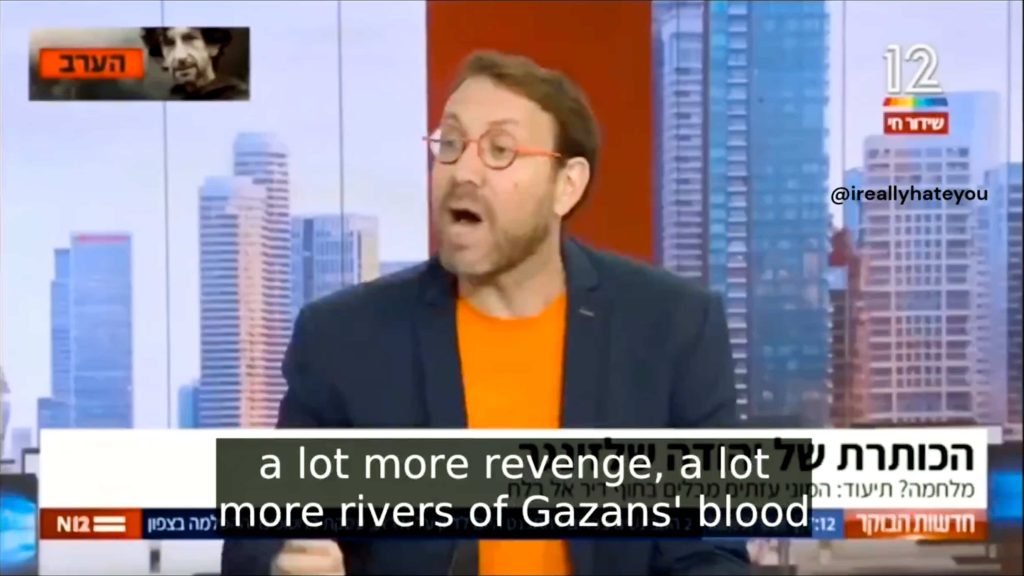
Another commentator, this time on Channel 12, which is the most watched station in the country, Yehuda Schlesinger, complained about Gazans finding respite at the beach after months of traumatising Israeli bombardment which has left them without homes, places of work and schools:
“These people there [in Gaza] deserve death. A hard death, an agonising death. And instead we see them enjoying on the beach [sic], having fun… There are no innocent people there in the Gaza Strip… They are now enjoying on the beach, instead of starving, being jerked around, being severely tormented and hiding from shelling… We should have seen a lot more revenge, a lot more rivers of Gazans’ blood.”
The Bosnian Genocide in 1992 provides further stark parallel in the targeting and elimination of journalists who cover genocide. Journalists from around the world converged on the besieged city, but their presence did not shield them from the dangers of war. Sniper fire and random shelling were constant threats as journalists reported from the front lines. The Sarajevo Television building, representing a source of Bosniak resistance through information, was repeatedly targeted by Serb forces. Many journalists were killed while on duty, including those who ventured out to cover the surrounding conflict zones.
The targeting of journalists served a dual purpose: eliminating witnesses to the atrocities and suppressing a narrative that contradicted Serbian nationalist propaganda.
Years later, similar incidents still unfold in Gaza, where journalists continue to face dire threats under comparable circumstances. The assassination of Shireen Abu Akleh in 2022 and the bombing of a building housing major international media outlets including the Associated Press follows this egregious pattern.
In 2021, before the IDF bombed a building claimed to contain Hamas military intelligence, Jawwad Mahdi, the building’s owner, was captured on a live Al-Jazeera broadcast pleading for a brief delay to retrieve vital equipment. Despite his plea for just ten minutes to salvage cameras and other gear, the request was denied, leading to his despairing response: “You have destroyed our life’s work, memories, life. I will hang up, do what you want. There is a God.”
The Associated Press, which had operated from that building for 15 years, and had staff living in the building, confirmed that they had never observed any Hamas activities or operatives within. Despite this, the Israeli military provided no evidence to substantiate their claims about the building housing military assets.
The direct assassination of journalist Shireen Abu Akleh in May 2022, at the hands of an IDF sniper shot to the head, occurred while she was unmistakably dressed in a ‘PRESS’ vest during an Israeli raid in Jenin. A household name across the Arab world for her coverage of Israel and the Palestinian territories, Shireen was omnipresent at every significant event over her 25-year tenure as a senior correspondent for Al Jazeera. She was relentless in uncovering the truth and presenting it to the public.
Her assassination was initially met with a flurry of denials. When an IDF acknowledgment of probable responsibility finally came, it lacked any charges or meaningful accountability.
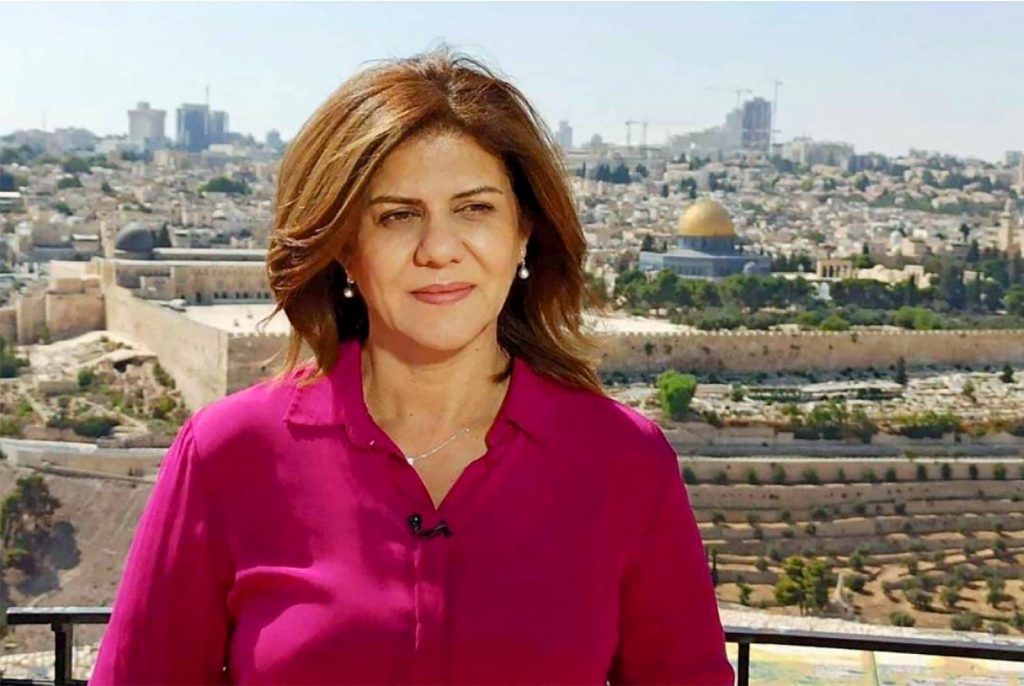
In October 2023, an independent UN report, alongside various media investigations, confirmed that Israeli soldiers took Shireen Abu Akleh’s life without cause. Nasser Abu Bakr, president of the Palestinian Journalists Syndicate (PJS), said:
“The UN Report confirms what has been clear to Palestinians for years – that the Israeli defence forces deliberately use lethal force to silence and intimidate journalists.”
As a result, the International Federation of Journalists, together with its affiliate PJS, called on the ICC to investigate the killing of the Palestinian journalist.
But Shireen is, of course, not alone. Recent assassinations of Hamza Wael Dahdouh, the son of Al Jazeera’s Gaza correspondent Wael Al-Dahdouh, and Mustafa Thuria, who were targeted by the IDF with drones, further substantiate that journalists in these regions are not just caught in crossfire.
In every instance, Israel claims to have launched a probe into its own actions; however, unsurprisingly, these investigations never lead to anything substantial, and they are soon forgotten, as the international community’s attention is diverted by Israel’s ongoing and more severe crimes against Palestinians.
The lack of accountability is not an oversight; it’s a calculated policy of impunity that essentially declares: We act with abandon; what can you do about it?
Impossible to hide a genocide
In today’s digital age, Israel faces an insurmountable challenge in its attempt to control the narrative surrounding its actions in Gaza. As traditional journalists are blocked from entry, the mantle of reporting has fallen to those who are living the ordeal.
“These were just people who were normal people on October 6th; some of them working in journalism, some of them not … they have nowhere to go. It’s not as if they’ve thrust themselves into this for some thrill-seeking, or even professional reasons. Just, they’re there, and they’re telling you about their life”, writes American journalist Ryan Grim.
Citizen journalism leveraging platforms like social media and instant messaging, has not only supplemented traditional news but has become the linchpin of reporting from Gaza. It ensures that the stories of suffering and resistance are brought to light. This includes irrefutable evidence of atrocities—videos, photos and personal accounts that document the killing and massacring of children, systematic destruction and other acts that are blatant war crimes. Disturbingly, some of this footage is uploaded by the perpetrators themselves—IDF soldiers who broadcast their war crimes accompanied by genocidal rhetoric. This unmediated insight not only circumvents traditional news gatekeepers, but also lays bare the actions that might otherwise be shrouded in denials or obfuscation.
This shift to other forms of consuming media comes as many mainstream media outlets, which purport to be liberal, have played a role in broadcasting Israel’s lies, such as 40 beheaded babies by Hamas, as propagated by none other than Joe Biden, hiring an actress to play anti-Hamas nurse, placing fake evidence to prove that al-Shifa hospital was an Hamas HQ, claiming that Palestinians in Gaza fake their own injuries, or, perhaps worst of all, asserting that UNRWA, the principal organisation responsible for providing aid in Gaza, has been colluding with Hamas, which played into the hands of Israel, intent on starving Palestinians.
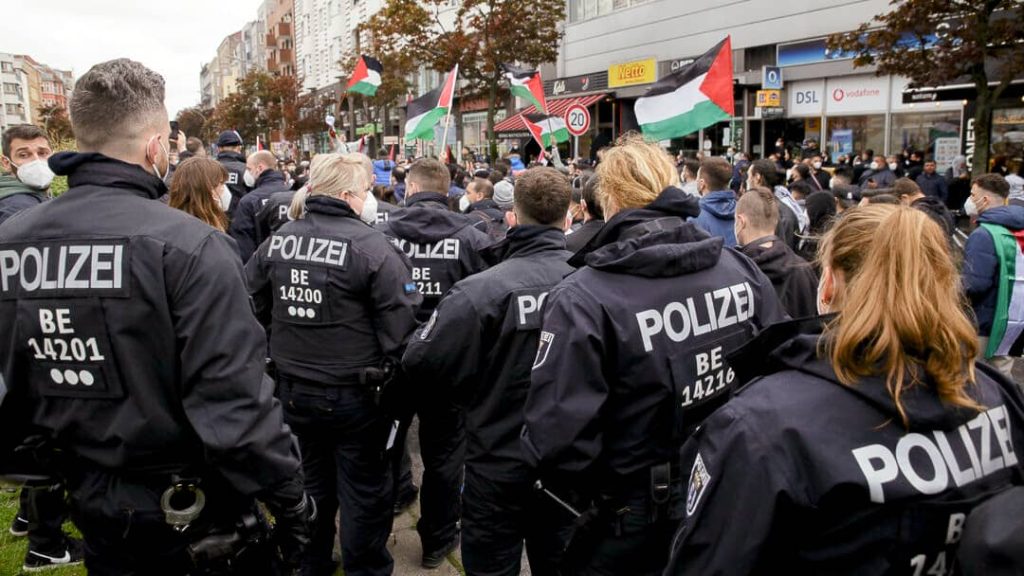
The primary audience for these revelations is the younger generation, who predominantly consume news via social media rather than through traditional outlets like satellite or live news. This shift is significant; it has driven the burgeoning global movement among universities and institutions advocating for divestment from Israel as a form of protest against what they rightly view as active participation in genocide.
In this new era, where every smartphone is a potential broadcast station, the narrative of Israel’s conduct is being shaped not by official channels but by the collective voice of a global populace committed to uncovering the truth. Information will leak through the cracks of censorship and will shine brightly in the spotlight of social scrutiny. The irony is that every attempt to mask the truth only draws more attention to it, and history is not kind to those who wage war not just on people, but on facts themselves.
Make no mistake, in the struggle between power and truth, truth invariably triumphs. It may not be immediate, and the cost is often grave, but it prevails steadfastly and inexorably. It does so because there will always be those determined to document reality, to relay the stories that those in power seek to silence. Israel might think it can manage the narrative, but as history has taught every tyrant, the truth has a persistent way of overcoming obstacles and shattering constraints.
Ultimately, the question is not if Israel’s deeds will remain obscured; it is whether the global community will react to what is laid bare right in front of them.


